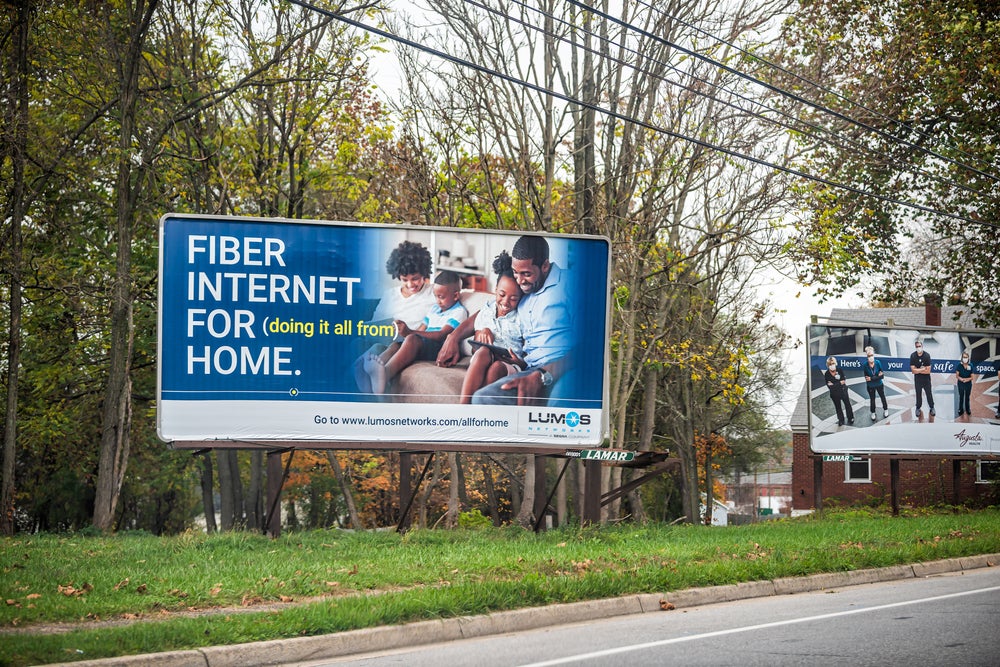Given the general state of dysfunction in Washington, DC, Congress actually getting its $1.2trn spending package for the fiscal year on President Biden’s desk in time to prevent a government shutdown was cause for relief, yet, since there was nary a mention of the Affordable Connectivity Program (ACP) in the budget’s 1,000-plus pages, the millions of American households relying on the government broadband subsidy to stay connected saw their last, best chance for its extension fade to black.
ACP now set to lapse despite bipartisan support
To be clear, there are some very faint vestiges of hope for proponents of the program. The White House announced on April 2 that the Biden administration would continue to beat the bushes this month on the ACP, which is currently used by more than 23 million American households (including 329,000 on tribal lands). Moreover, unlike plenty of government programs, the ACP actually enjoys support on both sides of the aisle – an increasingly rare commodity in US politics these days.
In January 2024, heeding persistent warnings from Federal Communications Commission (FCC) Chairwoman Jessica Rosenworcel about the subsidy’s imminent demise, the ACP Extension Act of 2024 was put forward in a bipartisan, bicameral effort to get ahead of the program’s upcoming funding shortfall before enrollment was frozen or the federal government got mired in its annual budget brouhaha.
Unfortunately, it’s an election year in the US, which means exactly nobody wants to give the other side a win – even on a program with bipartisan support. GOP leadership in the House of Representatives is reluctant to put any proposed legislation on funding the program to a vote. Consequently, the FCC froze ACP enrolment in early February 2024 and issued a public notice a month later saying that April is the last month for the full subsidy. Households receiving ACP credit could see partial payments in May before the coffers run out completely.
Operators brace for impact as millions of customers become candidates for churn
With increasingly foreboding signposts on the ACP’s impending demise, participating broadband operators were obligated in January 2024 to start delivering letters of notice to program recipients about its potential end. Now, those same operators hope to cushion the bottom-line blow by getting bare-bones, low-cost service options in front of those subscribers most likely to drop service – meaning the roughly three-quarters of recipients that the FCC believes “would experience service disruption or would have to change those existing plans or stop service altogether.”
Almost all US operators face some exposure to the demise of the current iteration of the ACP, which provides a $30/month subsidy ($75/month on tribal lands) toward broadband service, as many subscribers will inevitably cut back on their connectivity packages to cope with the difference in monthly spend. However, it’s also worth noting that with 5.4 million of its customers receiving the benefit for their home internet service, Charter has far more skin in the game than anybody else, meaning it could feel the most pain from potential disconnects.
How well do you really know your competitors?
Access the most comprehensive Company Profiles on the market, powered by GlobalData. Save hours of research. Gain competitive edge.

Thank you!
Your download email will arrive shortly
Not ready to buy yet? Download a free sample
We are confident about the unique quality of our Company Profiles. However, we want you to make the most beneficial decision for your business, so we offer a free sample that you can download by submitting the below form
By GlobalDataTaking the ACP off the board will hurt BEAD efforts
Recognizing that closing the digital divide is about both availability and affordability, the ACP’s original $14.2bn pot was set aside as part of the Biden administration’s sweeping $66bn Infrastructure Investment and Jobs Act – the same legislation that introduced the ambitious Broadband Equity, Access, and Deployment (BEAD) Program.
However, with BEAD poised to pump $42.45bn of government funding into broadband buildouts in unconnected areas throughout the country, the ACP’s demise puts BEAD’s success in jeopardy. A significant number of the households in those unconnected areas won’t actually be able to afford connectivity once buildouts hit their areas without that government credit to lighten the load, stifling the penetration for operators looking to see a return on participating in BEAD-fuelled buildouts.
Such an outcome would mute operator engagement with BEAD, limiting the number of broadband players participating in bids and potentially leaving more unconnected areas on the US broadband map. In short, Washington’s inaction on the ACP stands to cause heartache for operators and consumers alike.








